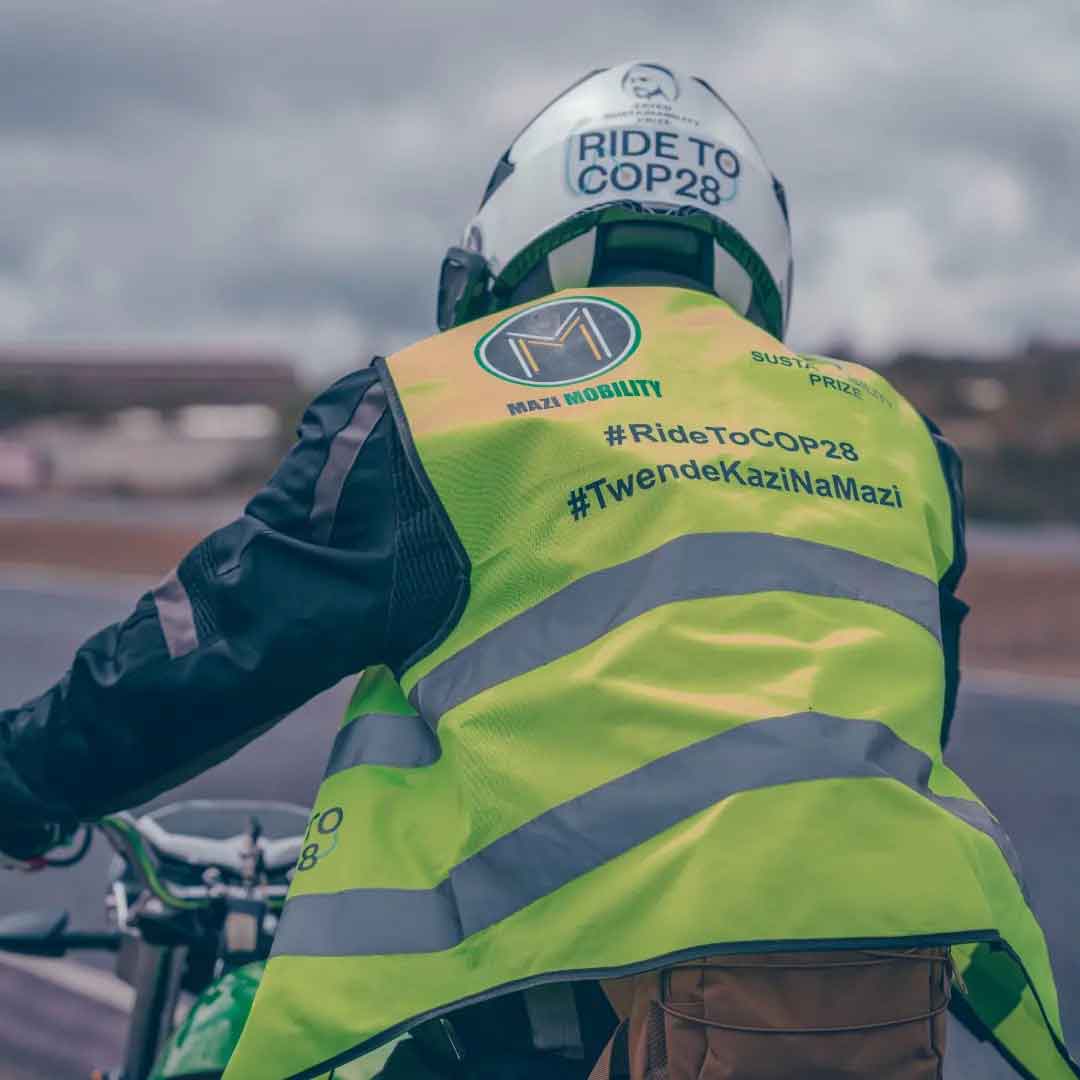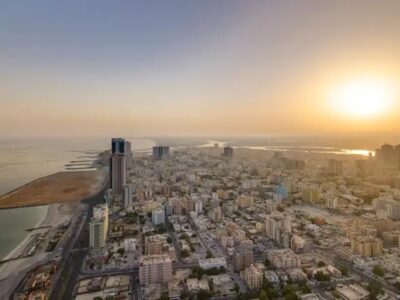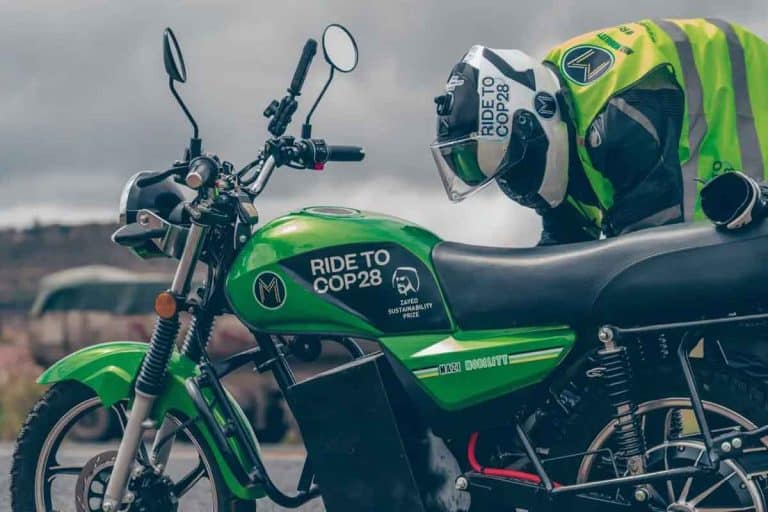In the fast-paced world of climate change discussions, one company is gearing up to make a statement that cannot be ignored.
Mazi Mobility, a Kenyan-based mobility-as-a-service company, is embarking on a groundbreaking initiative – a ride from Nairobi to Dubai for COP28 on an electric motorcycle to raise awareness about the importance of sustainable mobility.
This journey, according to the founder is not just a showcase of eco-friendly transportation but a testament to the challenges and triumphs of the electric mobility sector in Africa and all around the world.
Based in Kenya, the company focuses on selling electric motorcycles while developing and managing charging station infrastructure, aiming to decarbonise transportation on the continent, particularly in the two-wheeler segment.
The “Ride to COP28” initiative is a strategic move by Mazi to amplify the conversation around sustainable mobility. Jesse Forester, the founder of Mazi Mobility, in an exclusive interview with Arabian Business, emphasised the need for global recognition of African efforts in the field. Inspired by a realisation during COP27 in Egypt that many were unaware of Africa’s strides in sustainable mobility, Forester decided to take action.
“I realised there is an infrastructure gap in Africa, you have to spend 90 billion for the next ten years to build the infrastructure gap,” he said, explaining that the continent has the lowest percentage of vehicle ownership in the world.
The ‘Ride to COP28’ initiative involves a ride through Egypt, Jordan, Saudi Arabia, and finally, the UAE for COP28 which is set to take place at the iconic EXPO site. The exact electric motorcycle used for this feat will be on display at COP28 for individuals to visit, learn more about and explore.
The ride itself is not without its challenges, the founder explains, originally planned to cover Sudan and Egypt, geopolitical conflicts forced the team to reroute the journey, navigating through Saudi Arabia and Jordan instead. The logistical hurdles of charging infrastructure, permits, and documentation for cross-border travel have added layers of complexity to the initiative.
Forrester delved into his personal connection to transportation. He recounted childhood memories of witnessing a transformation in Kenya’s public transport system and Matatus, reminiscing fondly on the concept of the privately owned minibuses and share taxis most of which feature intricate designs and stand out as a monument of transportation in Kenya.
On a ride in a matatu with his mother as a child, Forrester reminisced about a moment when he told her, “I will be the minister of transport one day.”
Revolutionising Transport: Electric Motorcycles Thrive
With a drive in mobility and sustainable transportation, Forrester believes that electric motorcycles present a commercially viable solution, saving customers up to 27 percent of their daily transportation costs. Currently boasting a fleet of 60-plus electric motorcycles, Mazi Mobility aims to showcase its technological prowess during the ride to COP28.
The heart of Mazi’s message lies in the potential of electric mobility becoming a mainstream method of transportation. Forrester envisions a future where sustainability is ubiquitous, present across all countries in diverse ways. However, there are several challenges that need to be tackled first.

The ride will cover 400 kilometres per day with the electric motorcycle followed by chase cars, on-the-go battery changes, a traveling technician and more. The entire ride is going to be filmed and eventually made into a documentary.
According to Forrester, The ride to COP28 serves as a real-world test, highlighting the unique challenges faced and the solutions needed to make electric mobility a practical and sustainable choice globally.
“By doing this ride, I hope we help accelerate the conversation. This is not a novelty,” Forrester concluded.








